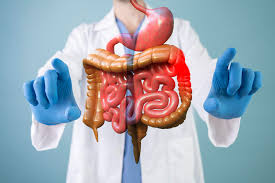
Gastroenterology is a branch of medicine focused on the diagnosis, treatment, and prevention of disorders affecting the digestive system. The digestive system includes organs such as the esophagus, stomach, small intestine, liver, pancreas, gallbladder, and colon. A gastroenterologist is a specialized doctor trained to manage a wide range of digestive health issues, from common conditions like acid reflux to complex diseases like Crohn’s disease or liver cirrhosis.
Gastroesophageal reflux disease (GERD) occurs when stomach acid flows back into the esophagus, leading to symptoms like heartburn, chest pain, and regurgitation. Long-term GERD can lead to more serious complications, including esophageal damage or Barrett’s esophagus. A gastroenterologist can help manage symptoms through lifestyle changes, medications, and in some cases, surgery.
IBS is a functional gastrointestinal disorder characterized by chronic abdominal pain, bloating, and changes in bowel habits (diarrhea or constipation). While IBS doesn’t cause permanent damage to the digestive tract, it can significantly impact quality of life. Treatment usually involves dietary modifications, stress management, and medications.
Celiac disease is an autoimmune disorder where the ingestion of gluten damages the lining of the small intestine. It can lead to malabsorption of nutrients and various symptoms, including diarrhea, weight loss, and fatigue. The primary treatment is a lifelong gluten-free diet. Gastroenterologists play a key role in diagnosis through blood tests and endoscopy.
Inflammatory Bowel Disease includes conditions like Crohn’s disease and ulcerative colitis, which involve chronic inflammation of the gastrointestinal tract. Symptoms can include abdominal pain, diarrhea, weight loss, and fatigue. Gastroenterologists help manage IBD with medications, dietary changes, and in some cases, surgery to remove damaged portions of the intestine.
Conditions such as hepatitis, fatty liver disease, and cirrhosis fall under the domain of gastroenterology. These conditions often present with vague symptoms in the early stages, such as fatigue, jaundice (yellowing of the skin and eyes), and abdominal pain. Gastroenterologists perform liver function tests, imaging studies, and biopsies to diagnose and monitor liver health.
Gastroenterologists use a variety of procedures to diagnose and treat digestive disorders, including:
Depending on the condition, treatment may involve medications such as:
A major part of managing gastrointestinal disorders involves diet. Gastroenterologists often work closely with nutritionists to help patients make dietary changes that improve their condition. For example:
In some cases, surgery may be necessary to treat gastrointestinal diseases, especially when medications and lifestyle changes aren’t effective. Some common surgeries include:
You should consult a gastroenterologist if you experience:
Early consultation can help prevent complications and improve your digestive health over time.
Gastroenterology plays a critical role in maintaining digestive health, diagnosing complex conditions, and providing effective treatments. Whether you’re struggling with chronic digestive issues or need a routine screening, a gastroenterologist can provide the expertise and care necessary to manage your symptoms and improve your quality of life.
If you’re experiencing gastrointestinal symptoms, don’t hesitate to schedule a consultation with a gastroenterologist for a thorough evaluation and personalized treatment plan.